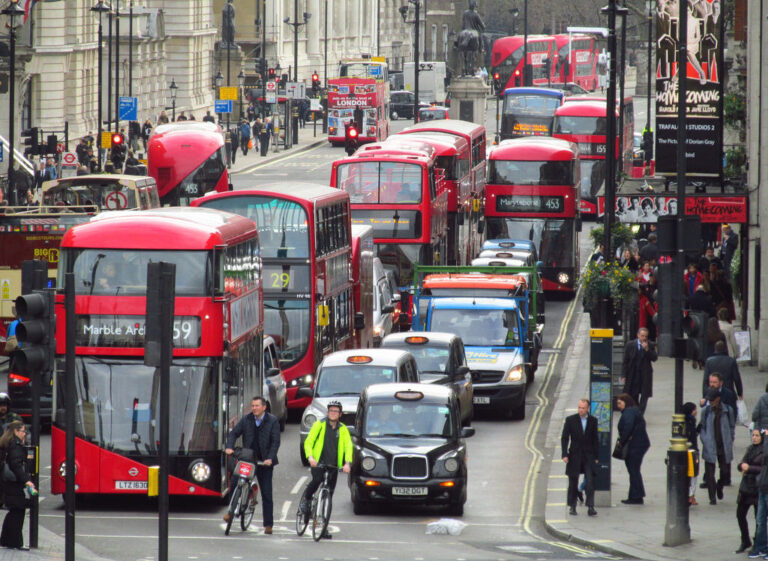Plans to extend London’s Ultra Low Emission Zone to the whole of Greater London for lorries in 2020 and inner London for vans in 2021 have been greeted with dismay by the Freight Transport Association, which warned that small businesses would be particularly hard hit.
An Ultra Low Emission Zone is already due to start in central London in April 2019. Mayor Sadiq Khan said: “An expanded Ultra-Low Emission Zone, in conjunction with the Central London ULEZ, will really help transform the air that millions of Londoners breathe.”
He estimates that 35,000 vans, 3,000 lorries and 100,000 cars might be affected by the expanded zone and tighter standards every day.
Lorries and diesel vans will need to meet Euro 6 standards to avoid being charged. Non-compliant vehicles in the expanded zone will be a daily ULEZ charge of £12.50.
Christopher Snelling, head of UK policy at the FTA, said: “While some large logistics operators will have mostly compliant fleets, the real losers here will be small companies reliant on their lorries or vans. Small firms tend to buy second- hand so will have older vehicles that do not reach the latest emissions standards and will really struggle to raise the loans they will need to buy compliant vehicles a few years early then they would have.”
The Layor argues that expanding the ULEZ beyond central London and strict standards for heavy vehicles across London will result in more than 100,000 Londoners no longer living in areas exceeding legal air quality limits in 2021, a reduction of nearly 80 per cent compared to without expansion.
“All areas of London are expected to see reductions in pollution, including on the North and South Circular Roads and only four per cent of roads in Outer London are expected to exceed legal limits in 2021.”
However, the FTA has calculated that, for a typical small firm with five lorries or five vans, the extra cost of compliance in 2020 or 2021 will amount to more than 40 per cent of their annual turnover – putting the business model of the company at risk.”
It said it would continue to argue for limited sunset clauses for operators based inside the expanded Zone who need more time to meet the requirements, while not endangering positive overall progress on air quality.







